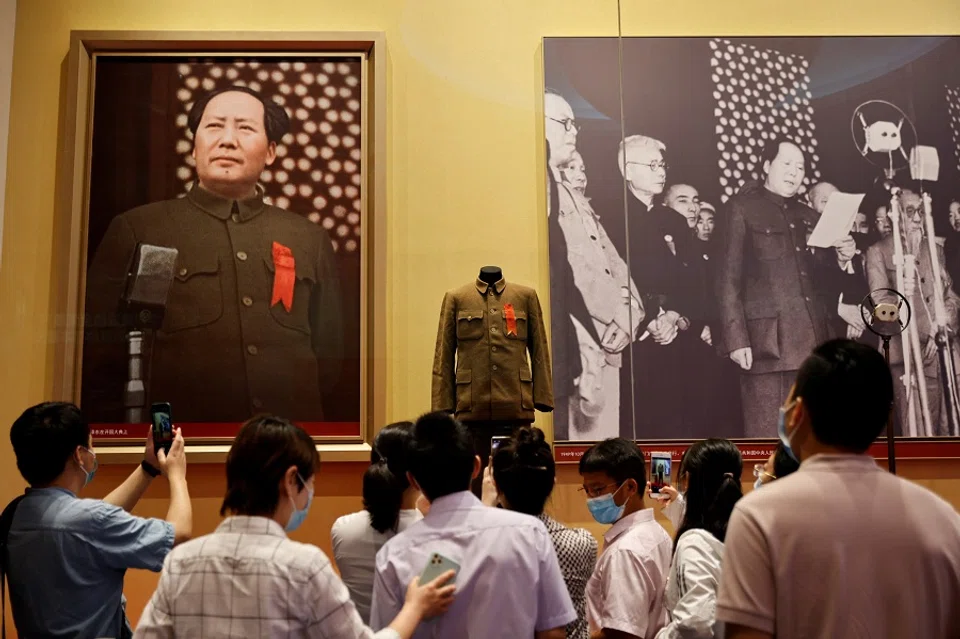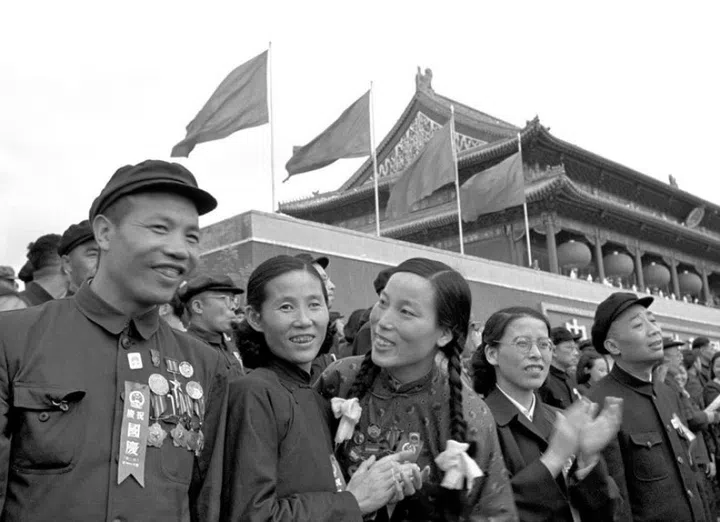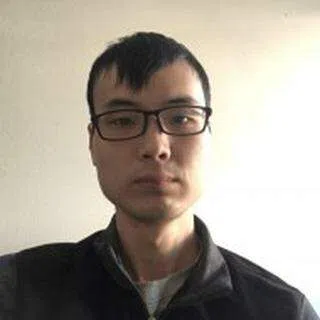China idol: Mao Zedong makes a comeback among Chinese youth
China's youth today are turning to Mao Zedong for inspiration amid a crushing sense of social immobility and injustice. But Wang Qingmin recalls the Mao era to be one of violent political struggles, anti-intellectualism, and cult of personality. Is a return to Mao really the answer?

Lately, Chinese netizens who like to discuss politics and social realities (known as the "keyboard politics circle" (键政圈)) have been studying, researching, emulating and even worshipping Mao Zedong. Chinese internet platforms such as Zhihu, Bilibili, Douban, and Weibo are littered with praise for Mao, admiration for the Mao spirit and propagation of Maoist thinking. They generally call Mao a "teacher", shaping his image as one who has great knowledge but is approachable. The Mao craze has attracted attention in China and abroad, even from The New York Times.
These young Mao fans feel a sense of nostalgia not only for Mao but also the period between the Northern Expedition (a military campaign in 1926 waged by the Nationalists against regional warlords) and reform and opening up in the late 1970s. They glorify the revolutionary era, believing it to be heroic and honourable, because it was aimed at tearing down the old world and building a new China without exploitation or oppression. They also believe that in the years between the establishment of the People's Republic of China (PRC) in 1949 and reform and opening up, China was an equal society in which the working class enjoyed supreme glory and the country's industrialisation process made remarkable achievements. In all this, Mao was the teacher, the "red sun", and the great leader who led the Chinese to overthrow the "three great mountains" of imperialism, feudalism, and bureaucratic capitalism.
These young people enamoured with Mao avoid talking about Mao's mistakes and the brutal history of class struggle, treating these events as inevitable sacrifices that had to be made for revolution and development. Mao fans also blame the Great Leap Forward, the people's commune, the Cultural Revolution, and other earlier rectification movements on the external environment or the mistakes and extreme actions taken at the subordinate levels. In all of these policies, Mao was always honourable and above reproach.
China's youth grappling with contradictions in Chinese society
Fundamentally, the rise of young Mao fans is the result of profound contradictions in Chinese society, the wide rich-poor gap, the expansion of bureaucratic capitalism, the weak social welfare system, and the increasingly harsh political environment. Following over four decades of reform and opening up, China's income inequality and entrenched class system have reached a shocking and irrevocable state. The majority of ordinary Chinese, especially those on the lower rungs of society, are unable to break free from their difficult and hopeless lives. Even youths of the petite bourgeoisie with some education and knowledge are being suffocated by China's 996 (working 9 am to 9 pm, six days a week) work culture. Recently trending phrases such as "lie flat" (躺平) and "involution" (内卷) are the self-mockery and helpless groans of the Chinese under immense pressure.
The rich-poor gap and entrenched class system have also led some youths to hate those with power and money; they seek to narrow the gap between the higher and lower classes and the rich and the poor in a bid to achieve equality and "great unity" (大同).

At the same time, China has also tightened its control of public opinion in recent years, dealing a big blow to liberals. Thus, many Chinese citizens, especially young students who care about politics, have turned to Maoism. In the 2010s and the period prior to that, Maoism was popular among the middle-aged and the elderly, and was marginalised among the youths. Now, the youths have become the driving force of Maoism. The din they have made on the internet far exceeds anything the older Mao fans were able to drum up.
Logically and emotionally speaking, it is understandable that many youths are becoming Mao fanatics. Today's society is fiercely competitive and the different classes are in opposition. People do not feel that they are being rewarded enough and lack a sense of security. They yearn for a political strongman to remove the "filth" of society. The rich-poor gap and entrenched class system have also led some youths to hate those with power and money; they seek to narrow the gap between the higher and lower classes and the rich and the poor in a bid to achieve equality and "great unity" (大同). And since they cannot express their angst through liberal ideology that advocates democratic constitutionalism, their suppressed rage is ignited by the burning fire of Maoism.
The reality of turning back to Mao
In reality, however, it is not good that youths are turning to Maoism because this implies a revival of violent political struggles, anti-intellectualism, and cult of personality. While Maoism and Maoist thinking have their merits, they are in essence not beneficial. Mao himself was a cruel dictator. He was behind the numerous calamities that have befallen the country since the establishment of the PRC, including the Yan'an Rectification Movement. Without his command, instigation, approval, and consent, the Anti-Rightist Campaign, Cultural Revolution, and other catastrophes would never have happened. He was also well aware that instituting the people's commune would lead to China's Great Famine and swelling in the industrial sector.
During the Mao era, people were divided into many categories and subcategories. For example, there were the working class and the farmers - two major social classes with the greatest social security disparities. The farmers were exploited by "price scissors" and strictly controlled by the household registration system. And then there were the "Five Black Categories" of landlords, rich farmers, counter-revolutionaries, criminals, and rightists. On top of them were all kinds of cadres who lorded over the people because of their privileged status. There was no equality during the Mao era; on the contrary, class divisions in China then were clearer and more pronounced than the period after reform and opening up.
People now can at least climb the social ladder via education and doing business, and all are equal in name. But during the Mao era, one's social class was clearly recorded in the files and stated on their identity cards. The strictures of the class system and misery of the oppressed was far worse than that of a feudal society. How could this have been a "heaven of equality" as termed by some Mao fans?

Even if members of the working class were promoted to leadership positions back then, they were still beneath cadres of all levels and adhered to strict discipline and restrictions. Labour strikes which occurred frequently and freedom of speech which was taken for granted in capitalist countries were non-existent in Mao's era. Chinese workers never truly enjoyed democracy. They were deprived of the right to elect the countries' political leaders and to voice their disapproval of the company's management. They also had no say on workers' welfare, including the right to travel for leisure. With all of their basic rights and personal freedoms controlled by someone else, how could they own the country? They were merely the country's slaves.
As for the industrial achievements prior to reform and opening up, those are also severe exaggerations and overdramatisations. While output was high, quality was worrying. Back then, there were factories and mines in various cities across the country, including small counties and towns. However, apart from well-known industrial giants like Ansteel Group and YTO Group Corporation, most other industrial enterprises and products were subpar projects that were barely surviving.
The "Two Bombs, One Satellite" nuclear phase was not fuelled by political movements but was made possible only after fending off political interference and its destructive effects. So too was the late agronomist Yuan Longping's hybrid rice theory and practice only introduced to the country and the world after the oppression of the Cultural Revolution and the brutality of Mao's era were overcome.
But Mao fanatics have completely distorted the facts and attributed the achievements of the "prior 30 years" (前三十年)before reform and opening up to Mao's leadership, his political campaigns and the superiority of the system under Mao. This is absolutely ridiculous.
At that time, industrial products were few and of inferior quality, and the agriculture and service sectors were in even worse shape. Apart from main food crops, there were restrictions on subsidiary agriculture products, and the planned economy was completely disconnected from the needs of the market. The economy was lacklustre and the various sectors were lacking and feeble. On the other hand, high-ranking cadres enjoyed all sorts of privileges, putting them above the masses. How could such a poor and backward society with no material goods and seriously unequal distribution of resources be a heaven on earth?
Less freedoms, not more
As for the "loud propaganda" of rhetoric and posters and debate that happened during the Cultural Revolution and before the Anti-Rightist Movement, some people consider it an example of freedom of speech. In fact, Mao himself admitted that the "airing of views" (鸣放) before the Anti-Rightist Movement was just an overt ruse to identify anti-party and anti-communist elements, leading to millions being persecuted. And the posters that came out during the Cultural Revolution were limited to criticism and discipline within a certain scope; no challenge was allowed against Mao or the party. The fates of so-called counter-revolutionaries Yu Luoke, Lin Zhao, and Zhang Zhixin demonstrated the results of airing views that went against the accepted line. The "four great freedoms" (四大自由, namely to speak one's mind, air one's views, engage in debate and to write big-character posters) were just tools that Mao in his political power used against people, and not rules to protect freedom of speech.
One of the greatest achievements of the Mao era was the promotion of women's liberation. But at the time, women and men alike had few rights to begin with - they took on similar or identical jobs and labour, and so there was some sort of "equality".

Others claim there was gender equality during that period, where much progress was made in women's liberation. To some extent this is correct. One of the greatest achievements of the Mao era was the promotion of women's liberation. But at the time, women and men alike had few rights to begin with - they took on similar or identical jobs and labour, and so there was some sort of "equality". However, this is very far from today's women's rights movement, with its pursuit of better and wider protection of women's rights and women's liberation in an industrialised society. Some people hold up Shen Jilan as a pioneer in pushing gender equality; actually, she was just a rubber stamp. Her views and the views of ordinary women were not sought in national policies, which were based on other political considerations.
The Maoists were stuck in historical nihilism, and were unable to come up with feasible solutions. Clearly, starting another Maoist-type revolution in China today would be unworkable and legally unjustifiable, to say nothing of lacking legitimacy of purpose. The revolution and political movement of the Maoist era brought a heavy disaster on the Chinese people and should not happen again. Mao fans would not agree, but that is the consensus of most of today's political participants and observers in China.
Much talk, few solutions
Young Maoists may be far more knowledgeable and have a wider perspective than "old-time" Maoists, but they are also unable to come up with feasible solutions with outlines and details to change things in China. For example, how would one change China's current established order, even if it is just to pry one little corner of it open? Having done that, how would one build an equal and democratic socialist country, avoid the mistakes of Lenin, Stalin, and Mao, and establish frameworks of ownership and distribution while taking care of efficiency and fairness? When it comes to these questions, they either skim the surface or avoid them completely.
All young Maoists know is to keep regurgitating excerpts and quotes from the Selected Works of Mao Tse-Tung and Quotations from Chairman Mao Tse-tung, trying to contrast the sayings of this long-dead person with reality and launching a wave of invective about China's current state, then proposing some empty and abstract revolutionary objectives, deluding themselves and others with Mao-style revolutionary rhetoric and getting high even as they numb themselves.
Obviously, nasty brainwashing, lack of reflection on history, long-term control over public opinion, and a block on information has created a generation of young people with skewed thoughts.

While Maoist thinking is not completely without merit, fundamentally it goes against what humankind should work towards. Objectively, it is unfeasible; subjectively, it is vile. And so, the renaissance of Maoist thinking in China is more negative than positive. Although to a certain degree it does trigger people's dissatisfaction and prompts them to better identify exploitation and oppression in the current situation, it cannot solve these problems. On the contrary, it allows those in office to use Maoist thinking to dilute and suppress universal values such as freedom, democracy, and equality, as well as progressive thoughts of a moderate, peaceful, and rational constitutionalism, and hit out at the pro-freedom camp outside the system.
So, however we look at it, this Maoist renaissance will not have a significant impact on the current system. But Mao's popularity among young people is worth thinking about and guarding against. Obviously, nasty brainwashing, lack of reflection on history, long-term control over public opinion, and a block on information has created a generation of young people with skewed thoughts. They see the blood-red sunset as "a beautiful vision" and are immersed in a dream of either Deng or Mao "fandom".
They feel the unfairness and injustice in society, but instead of putting up an honourable resistance, they choose to fight nastiness with nastiness, to the point of trying to replace the current people and systems with others that are even more harsh and evil. If that works, who knows how many more years of disasters China will have.
What will truly change China for the better are universal values of democratic constitutionalism, which include respecting and protecting human rights and the freedom of speech and press; ensuring free and fair elections and representation; taking care of national and individual interests; ensuring efficiency and fairness; and ensuring economic prosperity, the democratic rule of law, equal rights and equal distribution. We also have to record and reflect on history, educate future generations, and abandon ultimate power and individual adulation, so as not to repeat the calamity of what happened to the anti-rightist intellectuals, the tragic famine due to industrialisation and the Great Leap Forward, and the disaster of the Cultural Revolution.
Related: The return of Mao-era practices: New threat to China's political and economic modernisation | The most outstanding of CCP leaders? | Rise of China's CCP and demise of USSR's CPSU: A tale of two communist parties | Can the CCP forge an inclusive social contract and build a healthy civil society?




![[Photos] Fact versus fiction: The portrayal of WWII anti-Japanese martyrs in Taiwan](https://cassette.sphdigital.com.sg/image/thinkchina/3494f8bd481870f7c65b881fd21a3fd733f573f23232376e39c532a2c7593cbc)
